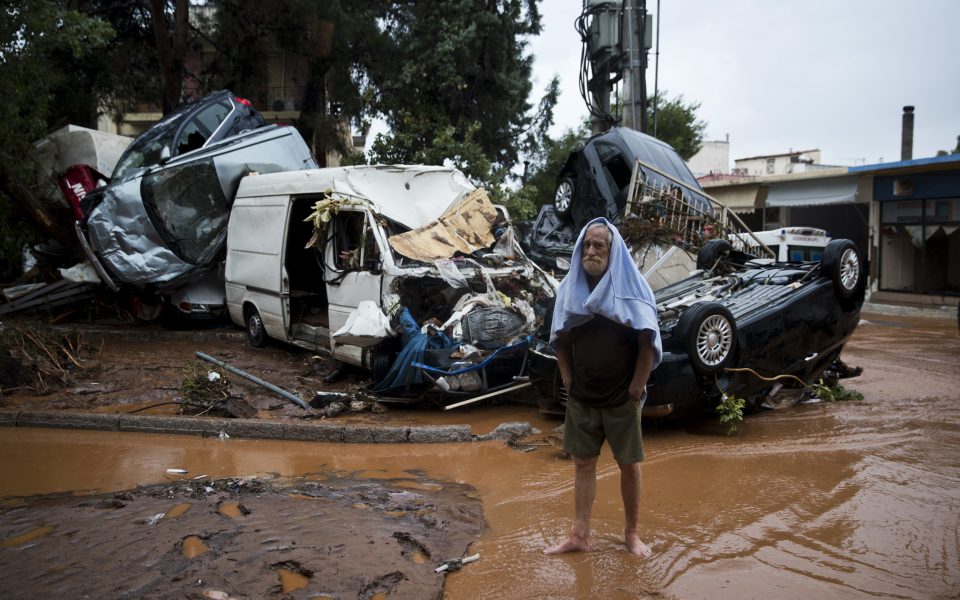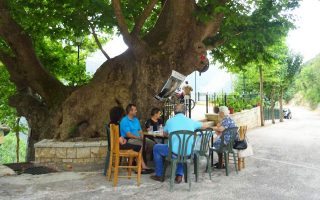Greece floods: ‘The water took everything’

Greek taxi driver Costas Maroulis was at home when deadly floods struck his town, leaving him no chance of escape.
“The water came down in two directions and the intersection was at my house,” the 62-year-old said, describing his ordeal a week after the disaster. “The water took everything.”
The torrent of water and mud stripped the surface off roads, swept cars into building-high piles of scrap, and left at least 21 people dead in the hillside town of Mandra and nearby areas in an industrial belt west of Athens.
A week later, crews clearing away debris have still not recovered all the bodies of those missing, as residents struggle to deal with aftermath of the disaster.
Maroulis recalled how a shoulder-high wall of floodwater smashed into his home. He fought to save his elderly mother-in-law, keeping her head above his own until the flooding finally subsided.
“I tried to use our fridge as a barrier, but the water was too fast. I turned away for a moment and it was gone,” he said.
Eventually he staggered outside, naked from the waist down to borrow clothes from neighbors. He was photographed barefoot, hands in the pockets of borrowed shorts, and with a light blue sweatshirt over his head after reaching the town square. A small mountain of cars and household debris formed a catastrophic backdrop.
The government declared a national day of mourning after last week’s floods, with flags flying at half-staff at the ancient Acropolis and at government buildings.
The army joined the effort this week to clear mud from the streets and homes of Mandra, as rescuers continued to pull bodies from the debris, the latest found Tuesday and believed to be that of a missing truck driver.
Using satellite imagery, European Union rescue services estimated that nearly 7,000 people had been directly affected in an area of about 300 hectares (740 acres).
Government crews said about 70 percent of the homes they had inspected in Mandra were seriously damaged or destroyed, leaving a lasting scar in the blue-collar town of 12,000 people.
Despite the scale of the damage, no one was reported homeless, survivors finding shelter with family and friends.
Maroulis went to stay with his daughter, but he fears recovery checks promised by the government won’t come close to the amount he would need to rebuild his life.
“I had filed for my pension and was looking forward to my retirement. Now everything has changed,” he said.
“I wasn’t afraid when the flood came because we were fighting to survive. But now, yes, I am afraid for the future.”
[AP]





